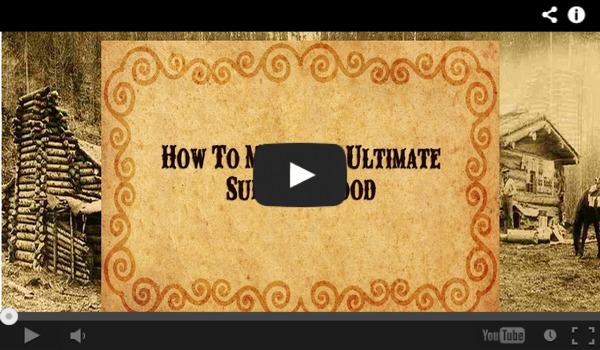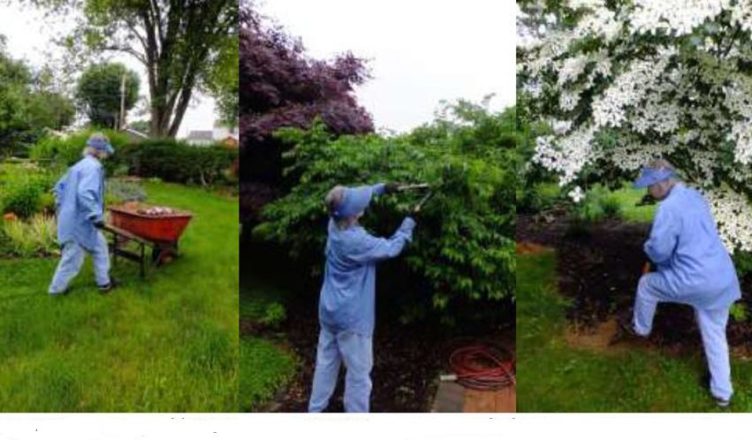Thomas Jefferson famously wrote to Charles Willson Peale in 1811 at age 68, “But though an old man, I am but a young gardener.” Any gardener who has planted peas on a brilliant spring morning or cut zinnias on a sunny summer day knows the feeling of a lightened step, a younger mood. There is mounting empirical evidence that gardening is both good for the spirit & for the body as well.
Of course, you knew this all along.
1. Gardening Helps You to Stay Lean You can expend calories by going dutifully to the gym, or you can simply live an active life: “Non-exercise activity thermogenesis” or NEAT, is now officially recognized as an effective way to keep incoming and outgoing calories in healthy balance. According to Dr. James Levine of the Mayo Clinic, engaging in everyday activities can overcome a propensity to gain weight. “NEAT includes all those activities that render us vibrant, unique, and independent beings,” says Dr. Levine. Gardening, for instance, expends 200-400 calories per hour!
2.Gardening Keeps Your Bones StrongWomen aged 50 and older who garden weekly have stronger bones than those who engage in jogging, swimming, walking, or aerobics, according to a 2000 study by Dr. Lori Turner at the University of Arkansas. “We hadn’t expected yard work to be significant …But there’s a lot of weight-bearing motion going on in the garden—digging holes, pulling weeds, pushing a mower,” concluded Dr. Turner.
3.People Who Garden Are Less Likely To Be Deficient in Vitamin D Vitamin D is widely recognized as the sunshine vitamin. A deficit has been linked to an increased risk of a number of ailments, including common cancers, type 1 diabetes, and rheumatoid arthritis. Absorbing enough sunlight to allow your body to produce sufficient vitamin D but not so much that you risk skin cancer can be tricky.
Age complicates the situation, as a person over 65 years of age exposed to the same amount of sunlight as a 20-year-old person makes only about 25% of the vitamin D. According to Harvard Health Publications, a little sunshine can go a long way: 10 to 15 minutes of sun on the arms and legs a few times a week can generate nearly all the vitamin D the average person needs—assuming its rays are at a fairly direct angle. And regardless of age, time of year, and other factors, regular gardening has been shown to reduce the likelihood of inadequate vitamin D.

4.Gardening Makes Us HappyPeople who engage in green exercise, that is, activity while out in nature—even if its just for just a few minutes a day—enjoy greater self-esteem and improved mood, according to an analysis by researchers at the University of Essex. And actively playing in the dirt can offer extra rewards. A 2007 study suggests that contact with a common soil bacterium can increase the release of serotonin in parts of the brain that regulate mood. In other words, gardening makes us happy.
5.Gardens Build Healthy CommunitiesThe networks and social support that come from being involved in a Community Garden brings a whole other set of mental health benefits. Shared experiences with others growing traditional ethnic foods can be a starting point for understanding between cultures. The entire community benefits from a Community Garden in multiple ways: better nutrition, enhanced mental health, social ties, and an increased appreciation of social diversity.
6.The Fresher the Food, the Greater the Nutrient ContentGet the most out of your vegetables by eating them fresh from the garden. Vitamin C content can decline rapidly, particularly in leafy greens like spinach, after just three days of refrigeration. The best way to be sure your vegetables offer maximum nutritional benefit is to grow them yourself.

It Is Clear That The Evidence Is In!For a healthy life, garden often, and garden smart. Warm up your body by stretching,lift with your knees bent and your back straight,change tools often to reduce strain on your jointsand wear protective clothing: gloves, a sun hat, and shoes that grip the ground.
Postscript: Thomas Jefferson died on July 4, 1826 at age 83, after a long life spent farming and gardening … among other things.
source : Home Garden



